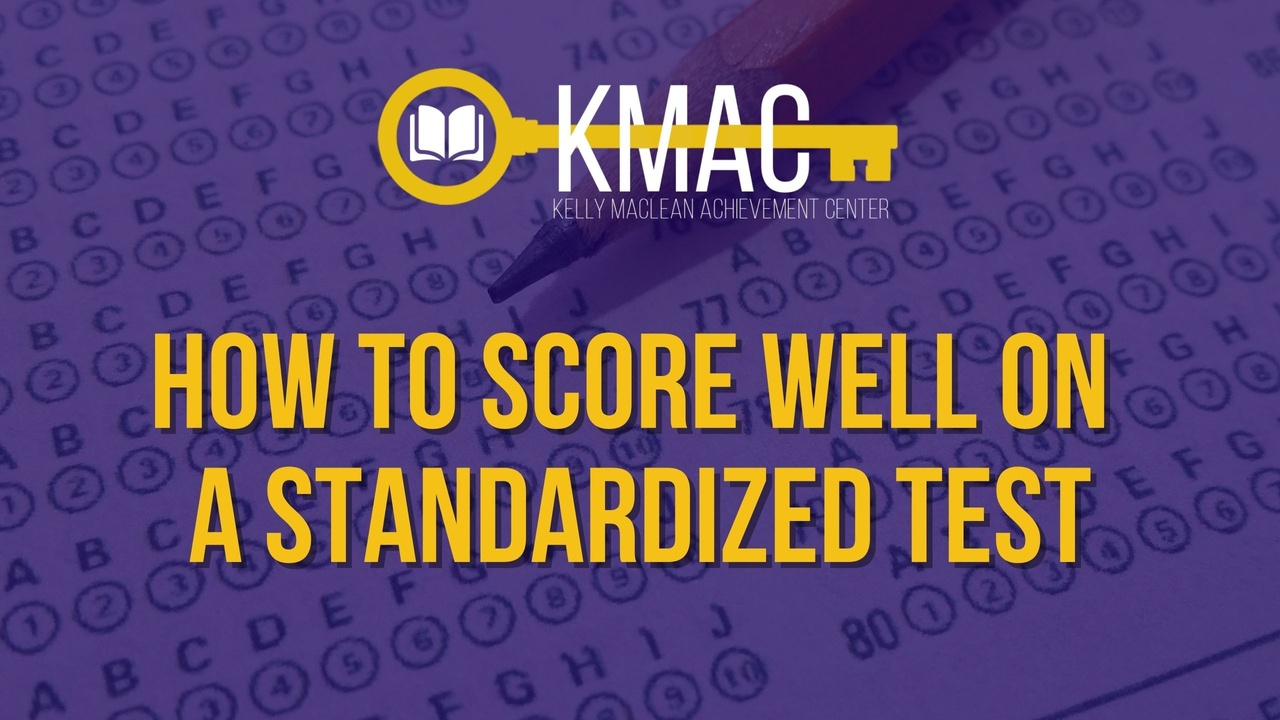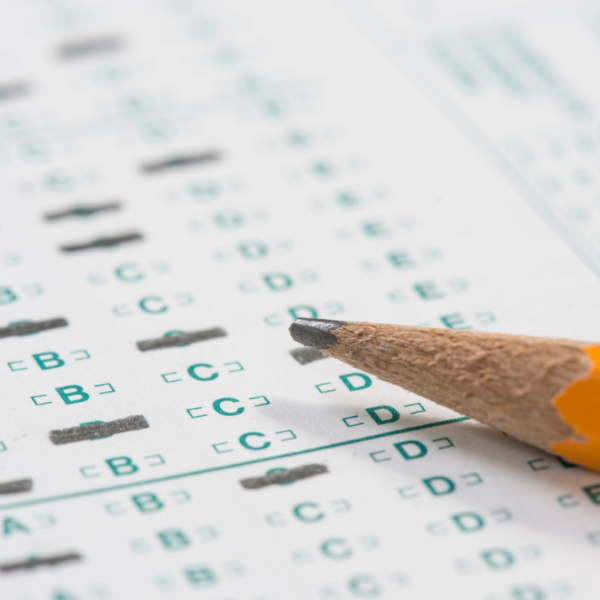
How to Score Well on a Standardized Test
Jan 19, 2022Imagine: You head over to a friend’s house to help them with their landscaping project. You are greeted by a friend covered in mulch, dirt, and random pieces of weeds. She asks you to move her car from the driveway so the mulch truck can pull in. You happily grab her keys and get in the car, only to realize you cannot move her car. Sure, it has a steering wheel, the key fits the ignition, there is a brake pedal and gas pedal— but there is also a clutch, and you have never driven a stick shift!!

Even though you have driven for years and are a good driver, you cannot perform the simple task of backing out of the driveway and parking in the street because you have not been taught how to successfully manage the transmission yourself.
This is exactly why good students are not automatically successful on standardized tests: they have not been taught the strategies, tricks, or time management needed to crush the test!
Standardized tests intentionally bait students into picking wrong answers. While they may argue that they do not, I believe that placing fake words on a test is wrong.
For example, a sentence indicating possession by an inanimate object will often options of it’s, its’, or its. Under the pressure of timing, a student is likely to immediately think that possession must be indicated by the use of an apostrophe and select one of the first two options.
Some students may realize "it’s" is actually the contraction for "it is", leaving the second option as the best one. However, its’ is not a word! The correct answer is its , even though the spelling and grammar rules that they have learned in their English classes may suggest otherwise.
Our prep covers these tricks to ensure that students do not fall for them.
We have spent the past 10 years analyzing tests and, more importantly, finding the simplest ways to show students the methods that will yield success. Your child probably thinks that they need to have dozens of formulas to complete the math section of the ACT; how else would they find the midpoint or distance on the test?
Instead of formulas, they will use a simple version of third grade method for one, and a basic middle school concept for the other. Doesn't that sound easier?
Does your child know their best reading style? We can help them find it and execute it on test day to ensure the best reading score possible!
Our research has yielded dozens of shortcuts and tips to make the test EASIER. Our students typically improve their score by 5-8 points after working with us. We have had several students earn a perfect 36, and dozens more score a 35, putting them in excellent position for acceptance and scholarships at the schools of their choice.
But what can YOU do to help your child?
Let’s talk about the brain science behind a student’s success. Most kids today would not fit into the category of “morning person”, but the test begins at 8am. Obviously, a good night’s sleep is important, but here are a few other simple steps to ensure your child is in their peak testing state:
- Kids must be up, feet on the floor, an hour before they
 need to leave the house. If your child needs to leave at 7:20 to get to the testing site early, they need to up by 6:20. Not laying in bed on their phone, not hitting snooze until the last minute— they need to be up and moving at least one hour before leaving the house!
need to leave the house. If your child needs to leave at 7:20 to get to the testing site early, they need to up by 6:20. Not laying in bed on their phone, not hitting snooze until the last minute— they need to be up and moving at least one hour before leaving the house! - During that hour at home, they need to drink at least 20 oz. of water. We become dehydrated overnight. Some studies suggest that being as little as 2% dehydrated can impair cognitive ability by 40%. Why take the chance? You want them to be clear and able to focus, not struggling with brain fog!
- Also, during this time, your student should be priming their brain. Think about athletes— they never just show up at game time and tell the coach that they are ready; they warm up, stretch, and run drills. The same should hold true for test taking. Have them do some practice ACT test sections in the area they struggle with the most, or at the very least in the English section as that is the first section of the test.
- We suggest that students work on their ACT prep on test morning while eating a “good” breakfast that includes protein and carbs. The brain uses 20% or your day’s calories. You need to fuel it before expecting exceptional performance.
- Your child should have their ID, ticket, pencils, and calculator ready the night before— right after a good, low sodium, low sugar dinner— so they don’t wake up with a food hangover, feeling listless.
- If possible, your child should drive themselves to the testing center. Driving involves critical thinking and helps prime the brain for thinking.
- Your child needs to keep a positive mindset throughout. If you hear, “it is four hours, I cant sit for that long, I lose focus,” have them shift their thinking to the following:
“It is only 45 minutes for English, and that's is not bad. That's about the length of one of my classes. It is 60 minutes for math, which is good— I will need the whole 60 minutes and then I will have a break. After break it is only 35 minutes for reading, that is not bad, and then only 35 minutes for science and I am done!”
By compartmentalizing the subjects, it does not feel nearly as overwhelming, and allows your child to focus on the section that they are working on at that point without focusing on the entire morning being spent taking a test.

These tips and the strategies we teach in our prep sessions have helped our former students feel more comfortable with the test and score much better. I hope your child can benefit from these tips as well!

